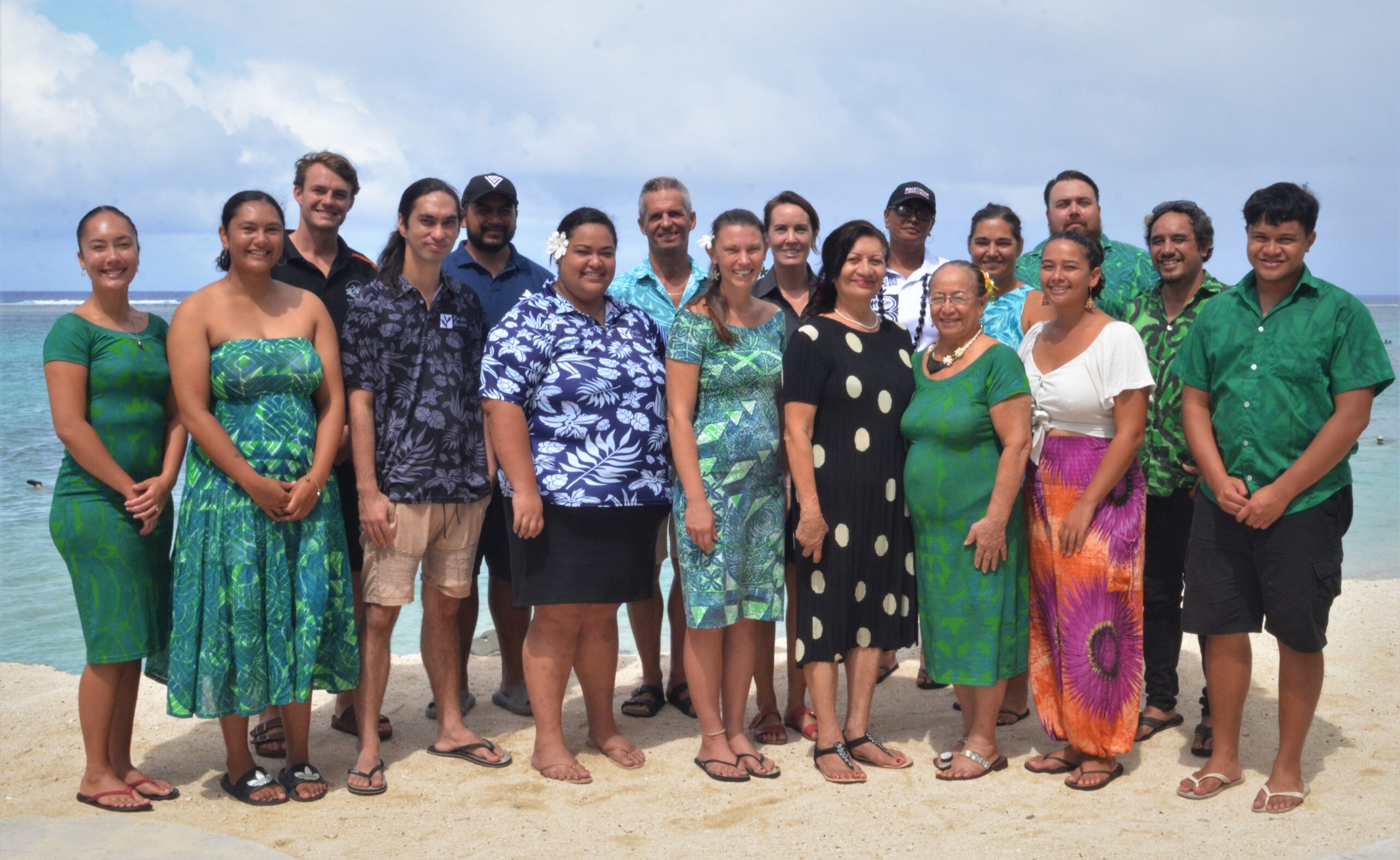$10 million project aims to reduce single-use plastics
Friday 8 March 2024 | Written by Melina Etches | Published in Environment, National

The GEF-8 Plastics RESPONSE Project Workshop was held at The Rarotongan Beach Resort & Lagoonarium, hosted by the National Environment Service and Te Ipukarea Society. MELINA ETCHES/24030603
A project to reduce the number of plastics entering the country, focused on the food and beverage sector, was discussed during a workshop in Rarotonga this week.
Like other countries around the world, the Cook Islands is an importer and end user of items with single-use plastic packaging.
These packaging end up at Rarotonga’s single landfill located in Arorangi which is the main form of waste management for non-recyclables in the Cook Islands.
The landfill is near to its capacity with no alternatives available for a secondary site due to limited land available.
On Wednesday, the National Environment Service (NES) presented the Cook Islands national project under the Global Environment Facility GEFs Circular Solutions to Plastic Pollution integrated programme – Reducing Single-use Plastics on Small Island Economies (RESPONSE).
NES manager environmental partnerships Hayley Weeks and senior environmental partnership coordinator Siana Whatarau delivered the project overview to the 15 participants at the GEF-8 Plastics RESPONSE Project Workshop that was held at The Rarotongan Beach Resort and Lagoonarium.
The objective of the project is to reduce the number of plastics entering the country, focused on the food and beverage sector. It is also to support enabling environments for reuse options and other circular solutions, with the intention of reducing the burden on the Cook Islands waste management system, and reducing pollution and harmful impacts of plastic.
According to NES, it is crucial to reduce the number of plastics being imported for the food and beverage industry which includes tourism and retail, as well as increase circularity and reuse in country to reduce the amount of plastic waste currently entering the environment.
Roland Neururer, food and beverage manager at The Edgewater Resort, said their biggest challenge is the single-use plastics.
The Edgewater has already stopped using the single-use plastic jam containers for quite some time and only use biodegradable cups and takeaway containers.
“We have found a company that brings in our jams that come in bottles that go into dispensers, so that’s great,” said Neururer.
“We are still searching for the tomato sauce and butter portions – this is still a big issue for us and there is no solution yet, so we are still sourcing.”
Neururer also explained that they no longer use the 1.5 litre plastic bottles and instead use a post mix dispenser machine.
However, the resort still uses the 600 millilitre bottles “which will be phased out fairly soon”.
Waste management is also a key issue due to the high costs to export and dispose of waste, including recyclable material, and market challenges.
The estimated project cost of the GEF-8 Plastics RESPONSE Project is US$6.2 million (NZ$10m) and will be implemented across five years from 2024 to 2029.
NES and Infrastructure Cook Islands (ICI) have been identified as the executing agencies for this project.
The expected results for this project are:
- To develop and strengthen upstream policies to limit plastic pollution,
- Support roll-out of food and beverage plastic packaging imported into the country,
- Support the private sector, NGOs and community solutions,
- National data on plastics to improve decision making, and
- Document knowledge exchange and lessons.
According to a Cook Islands 2020 Waste Audit, 1.5 million plastic bottles were imported in the one-year report period and single use plastic accounted for 20 per cent of total plastic products imported.
Plastics made up 94 per cent of the total waste stream in the Pa Enua hospitality sector and 13 per cent of Rarotonga and 20 per cent of Aitutaki households.
The audit also found that plastics were a dominant waste category across business types, particularly accommodation and retail. Waste composition of businesses was 23.6 per cent plastics (17-42 per cent range) and 5.7 per cent single use plastics (4-11 per cent range). Sports and leisure businesses had the highest proportion of single use items (20 per cent). Of the 2805m³ total volume of waste to landfill, 20 per cent is plastics and 5 per cent is single use plastics, and import/export data suggests very little material is exported for recycling or recovery.















































Comments
GM Hu on 14/03/2024
👍